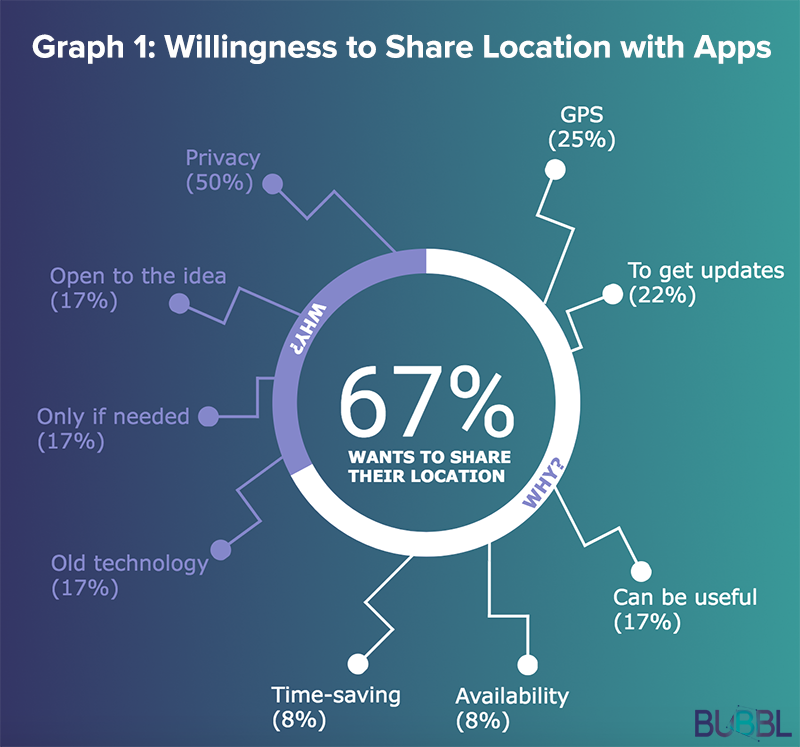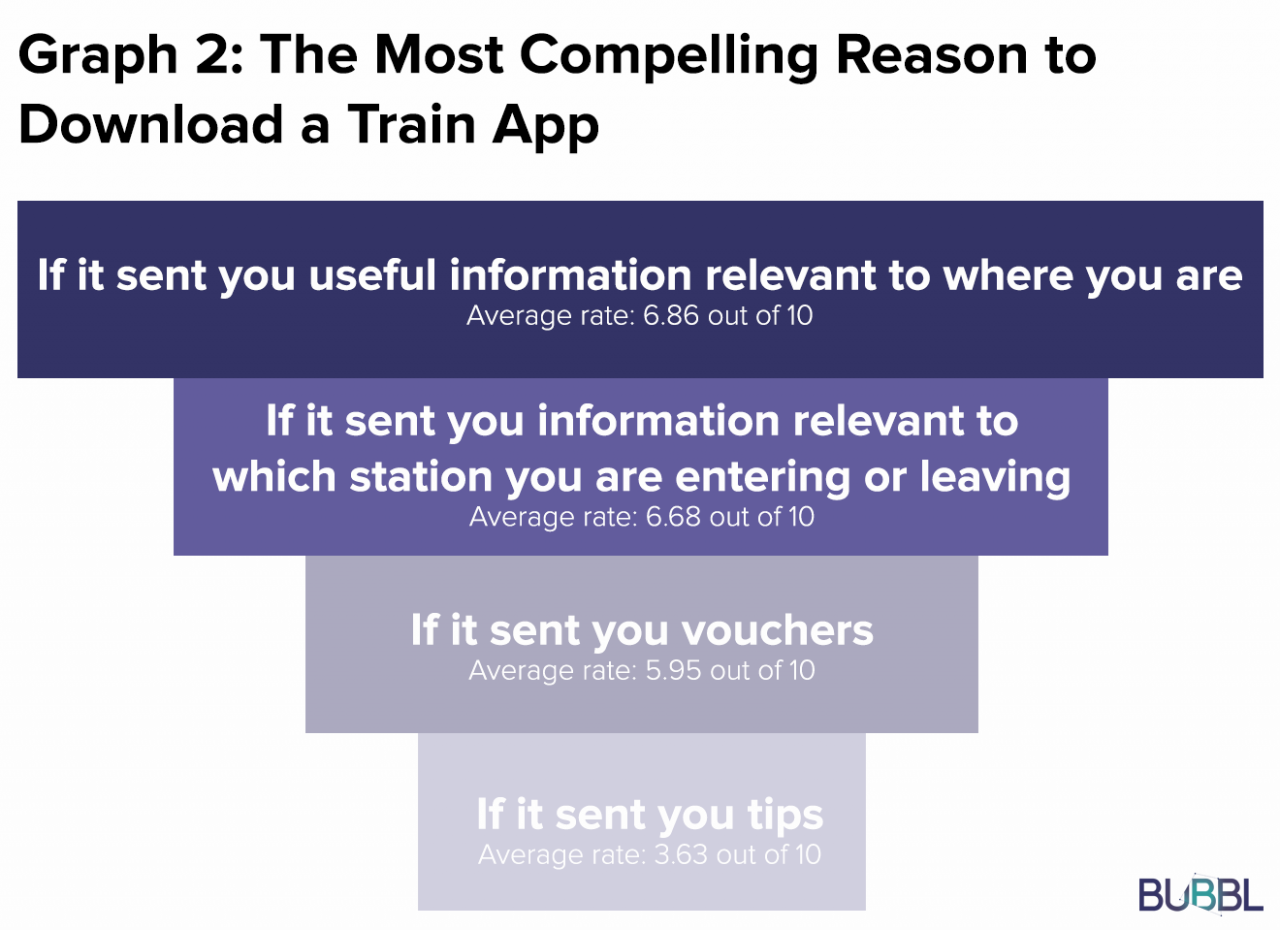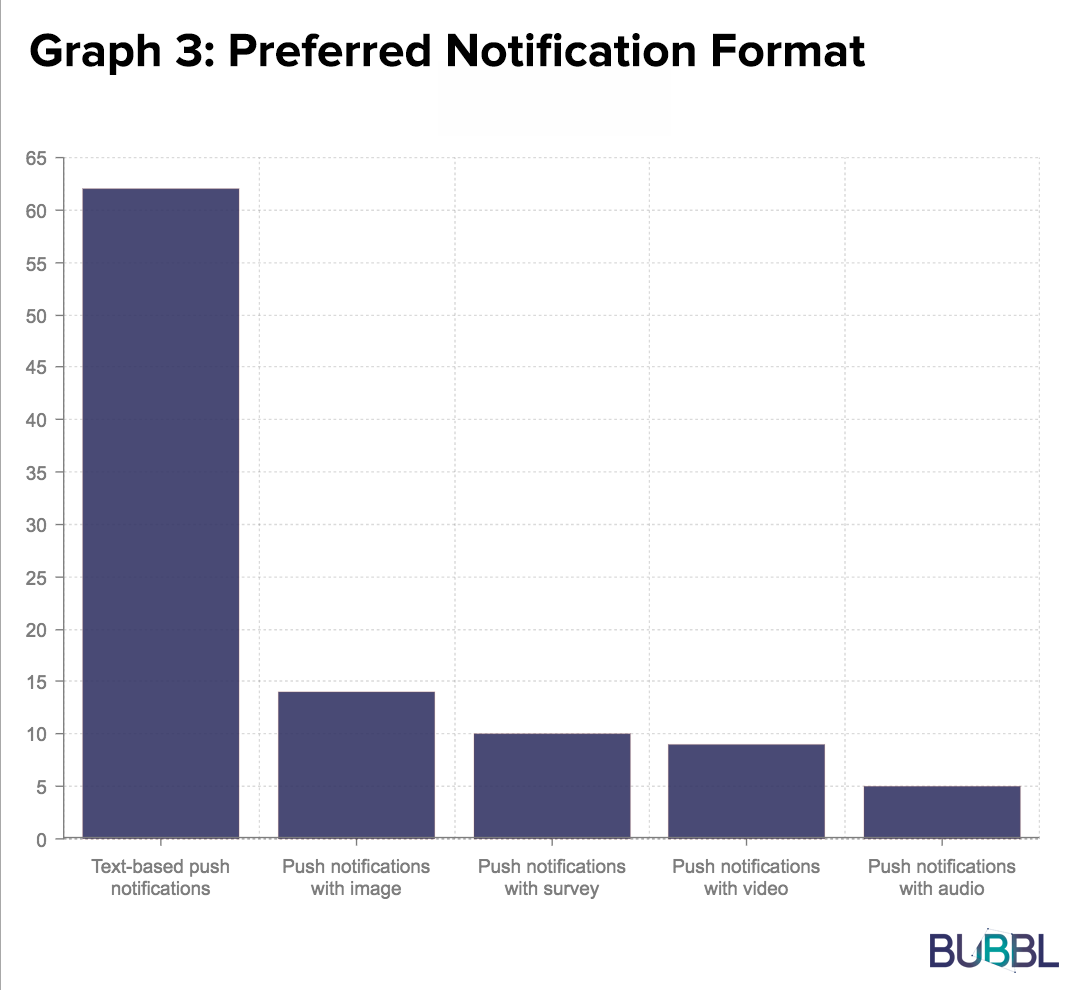What do rail passengers really think about location-based updates? Survey results
26 Oct 2017
_59f1f40541f15-75.jpeg)
So it turns out we’re pretty good at keeping secrets. A few months ago, we were selected as one of the few technology disruptors that can change how people experience rail travel. Working super hard throughout the 10 weeks London Midland accelerator programme, we’ve been dying to share the news. But rules are rules, and as good citizens of the tech world, we’ve tried our best to keep our mouth shut. SUCCESS.
We’re sure you can’t wait to know the outcome of the programme. You won’t go to sleep without some few fancy stats and world-changing key learnings that will let the natural clarity of your mind to finally flow free. And you definitely won’t be able to go on with your life without seeing our magnificent video showing how Bubbl can impact the rail travel… Though you might have to, we’ll keep this juicy bit for the next post, it’s all about splitting content, right?
So let’s get to it.
Survey Results:
On one sunny afternoon (who are we kidding, the survey was done in Birmingham), we went out into the world of trains, paper tickets, and not-so-angry passengers to find out what they think about location sharing and location-based updates, and how these could impact their experience when travelling by train. Here are the three most important things we found out:
1. Willingness to share location
You know how everyone keeps saying that no customer wants to share their location? Well, we proved them wrong. Again.
Almost 70% of train passengers are willing to share location with apps, with no questions asked. Why? They said it can be useful and save their time, provide them with location-based updates and GPS directions, and give access to the enhanced availability of brand offerings.
Among the minority who answered ‘No’, 34% are either open to the idea or would switch the location on if needed, and 50% are concerned about their privacy. So don’t panic. A good explanation of how you’ll use their location data will do the trick here, and the number of people willing to share their location with your app will increase even more.

During our additional qualitative interviews, all 6 of our interviewed passengers stated they have no issue with location-sharing. As one of them explained:
‘Every app has that now - facebook, instagram, and others. I have no issue with this whatsoever’,
Anon, PhD student, 28-35 yrs old
2. Train apps - why do they even care?
We found that, on average, respondents rated a probability of downloading a general train app as 6/10, so not too bad, giving the number of competing apps.
We digged further to find out how this number could be improved. Our respondents confirmed what we suspected from the start: Train apps that send users useful location-based updates relevant to where they are were perceived as more appealing. Other most compelling reasons to download a train app included:

3. Location-based updates: how often and what updates should you send?
Preferred type of location-based updates
The preferred type of location-based updates turned out to be simple text-based push notifications, but no surprise here. Travellers are in the constant rush, so any location-based update needs to be short and sweet, and what better way to do it than through few simple words that can be read in a second. Location-based update with an image was the second preferred choice and the survey and video followed promptly:

Preferred frequency of location-based updates
In terms of frequency, almost half of respondents prefer to receive location-based updates only if it concerns delays or other immediately needed information about the station they are currently at. This is in line with our motto - less is more. But surprisingly, 16% would want to be updated every time they enter and leave the station.
Preferred content of location-based updates
The points between various content of notifications were spread pretty much equally, showing that our survey respondents would be happy to receive all of the following:
-
Location-relevant vouchers to remind me about discounts in the shops I'm in close proximity to (e.g. discounts for food, activities, museums, trips etc.)
-
Location-relevant survey to give quick feedback about the train journey via my mobile phone
-
Location-relevant tips helping me to discover the city of destination (e.g. local insight on key landmarks)
-
Station-relevant guides on where to find and/or how to use station facilities
-
Station-relevant updates on train delays or any travel disruptions
-
Station-relevant guides on ticket types
However, in an open-ended question and during our qualitative interviews, it’s the update on train delays / station disruption, location-based vouchers and directions to nightlife/hotspots/food/landmarks that were the unquestionable winners.
Interested to know more or want to see how Bubbl could make your app more appealing for the users? Contact us at info@bubbl.tech or request a free 14 days trial here: www.bubbl.tech/request-a-demo
Don’t forget to check out our other recent posts: ‘3 Ways Geolocation Helps You Nail Your Mobile Marketing’ or 'How to Bridge Online and Offline to Create a Better Customer Engagement Strategy'.

Please login to comment.
Comments